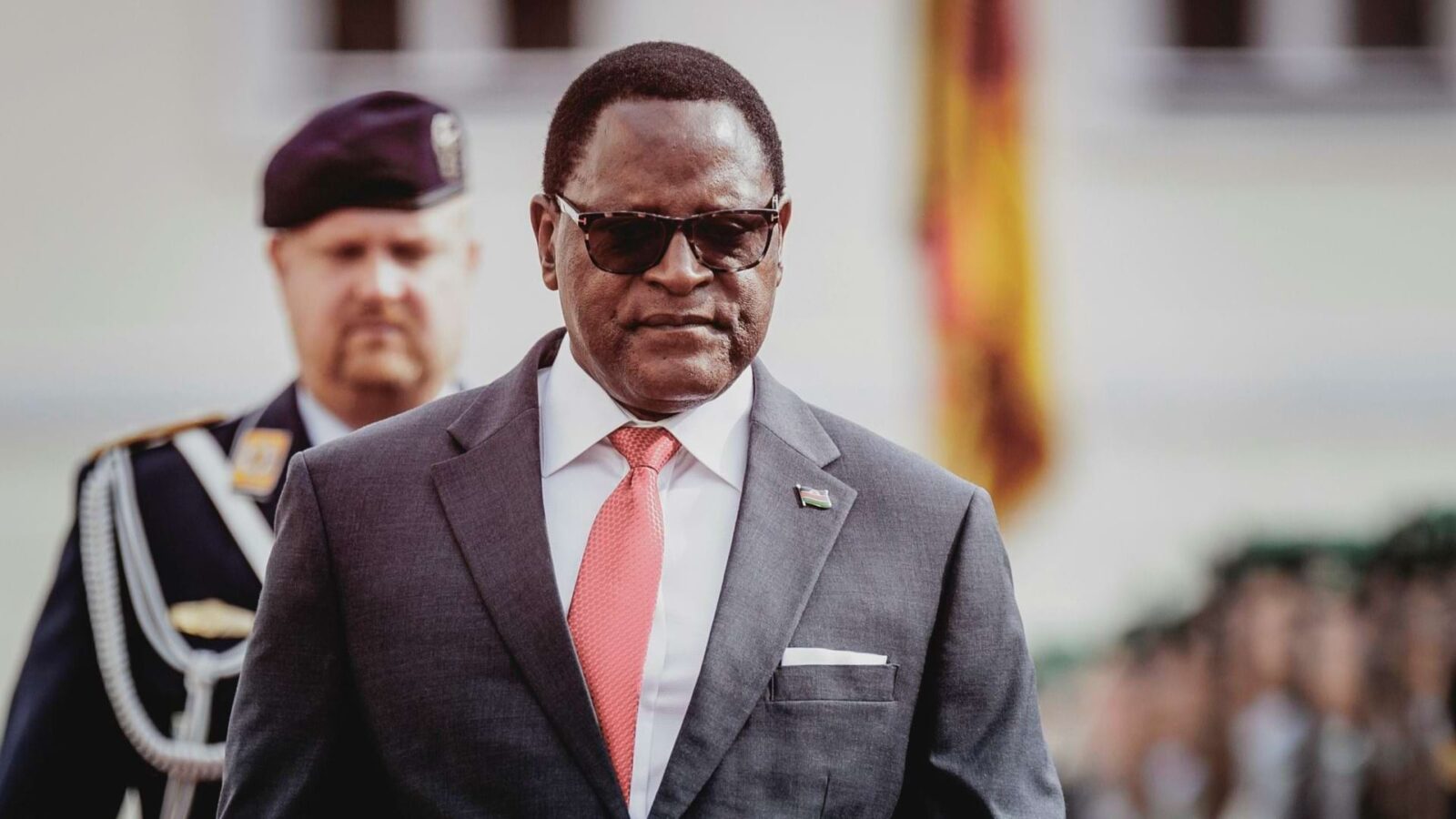Malawi’s presidential race is shaping up to be one of the most dramatic contests in recent years, with former President Peter Mutharika taking a comfortable lead over the incumbent, Lazarus Chakwera, according to provisional results released by the Malawi Electoral Commission. With two-thirds of the country’s districts already reporting, the 85-year-old Mutharika has secured approximately 66 percent of the valid votes counted so far, leaving Chakwera, 70, trailing with just around 24 percent. The early results suggest a strong comeback for Mutharika, who previously lost power after the courts annulled his 2019 victory, while raising serious concerns for Chakwera’s struggling campaign as he seeks a second term in office.
What has shocked many political observers is that Mutharika appears to be winning even in areas traditionally considered strongholds of Chakwera and his Malawi Congress Party (MCP). Reports indicate that the former president has outperformed expectations in the capital city of Lilongwe and in districts such as Nkhotakota, both of which had previously given Chakwera significant support. This development has sparked debate over whether voters have turned against the incumbent due to mounting economic hardships, including soaring inflation, persistent fuel and food shortages, and the near-constant power cuts that have defined his presidency.
Despite the uphill battle, Chakwera’s camp remains cautiously optimistic. His allies argue that with 12 districts still to declare their results, there remains a path to force a run-off if the incumbent performs well in certain regions. In particular, they are banking on rural areas surrounding Lilongwe and Dedza, which are home to large populations of registered voters who have historically supported Chakwera. However, analysts warn that even strong performances in these districts may not be enough to bridge the enormous gap already opened by Mutharika’s commanding lead.
The situation has been further complicated by the Malawi Electoral Commission’s decision to withhold results from at least two districts where Mutharika is projected to perform strongly. According to the commission, the move was necessary to ensure the accuracy and credibility of the tally sheets amid concerns of potential errors. The commission has publicly reiterated its commitment to transparency, fairness, and the credibility of the process, a stance shaped by the controversial 2019 election in which the Constitutional Court annulled Mutharika’s declared victory over widespread irregularities. That annulment ultimately paved the way for Chakwera’s decisive win in the 2020 re-run election, which brought him to power.
For many Malawians, the stakes in this election are deeply personal. Since Chakwera took office, Malawi has been grappling with an economic crisis that has eroded living standards across the nation. Inflation has driven up the cost of basic commodities, shortages of essential goods such as maize and fuel have become commonplace, and power cuts have disrupted businesses and daily life. These challenges have fueled public discontent and appear to be driving a shift in voter sentiment, with many citizens questioning whether Chakwera’s administration has delivered on the promises of reform and stability that swept him into power five years ago.
Mutharika, who governed Malawi from 2014 to 2020, is now seeking a political comeback that could cement his legacy and allow him to steer the country through its current crisis. His campaign has capitalized on widespread dissatisfaction with Chakwera’s leadership, portraying him as a more experienced and capable leader with a proven track record. If his current lead holds, Mutharika could avoid a run-off entirely, as Malawi’s electoral rules require a candidate to secure more than 50 percent of the vote to be declared outright winner.
The Malawi Electoral Commission has until the end of Wednesday to announce the final results of last week’s election. Political tensions are running high, with both camps preparing for potential disputes depending on the outcome. For now, Mutharika’s commanding lead paints a clear picture of voter frustration with the incumbent administration and sets the stage for what could be one of the most consequential elections in Malawi’s modern political history.













Leave a comment